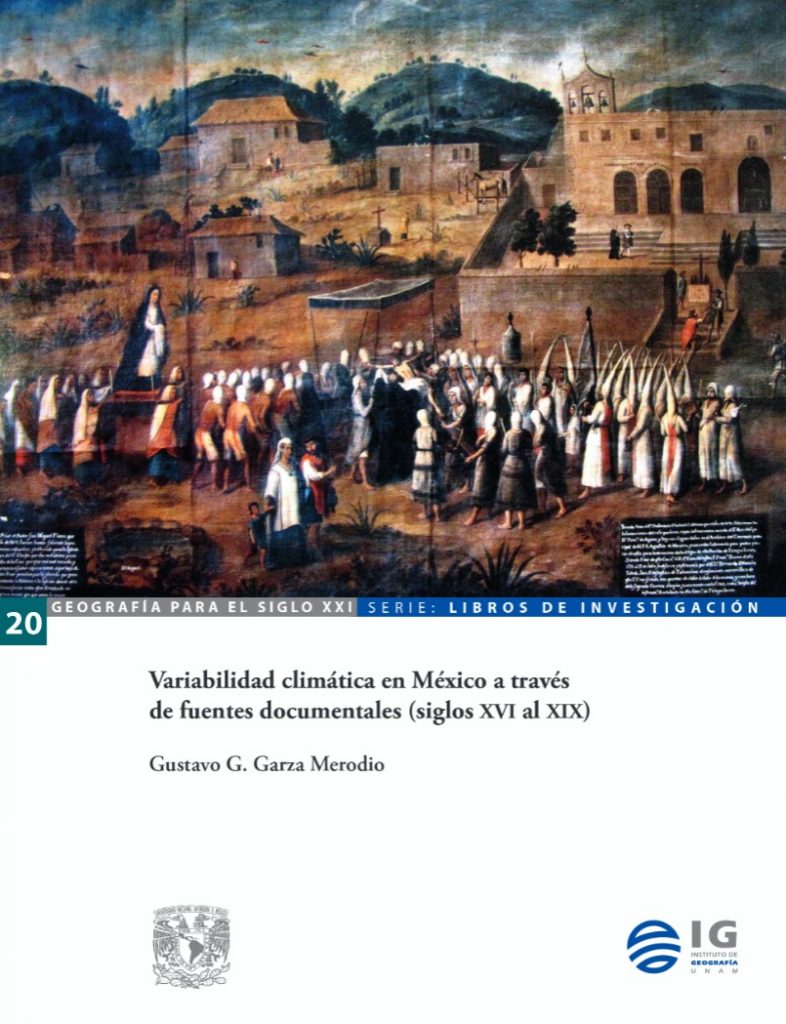
Libraries
Libraries
Variabilidad climática en México a través de fuentes documentales (siglos XVI al XIX)
In the Hispanic monarchy, the most accurate data for the reconstruction of climatic events, and even to generate climatic series, were the records of the rogativa ceremonies, recorded in the acts of the civil and ecclesiastical councils of the bishop’s sees. These ceremonies were based on rites or public acts with serious psychosocial implications that catalysed social discontent in the face of environmental, socio-economic or political vicissitudes.
Thus, Gustavo Garza’s analysis, based on the information provided by these records, demonstrates that the Little Ice Age – a unique climatic period – was far from being a generalised global cooling as has been argued. The information reveals the extremes that characterised this climatic anomaly: a wet phase throughout the 16th and 17th centuries and a dry phase throughout the 18th and first half of the 19th century.
This book is a fundamental contribution to the historical knowledge of extreme meteorological events that took place during an extensive period of Mexican history that is reconstructed thanks to a scholarly and careful work of documentary archives mainly from the cities of Mexico, Puebla and Morelia, as well as its comparison with those of Guadalajara, Oaxaca, Durango, Hermosillo, Mérida and San Cristóbal de las Casas.

